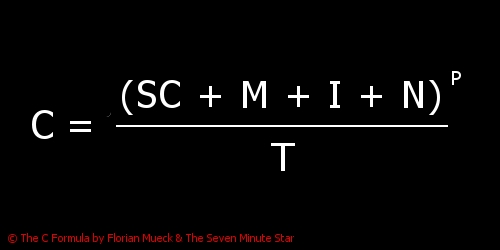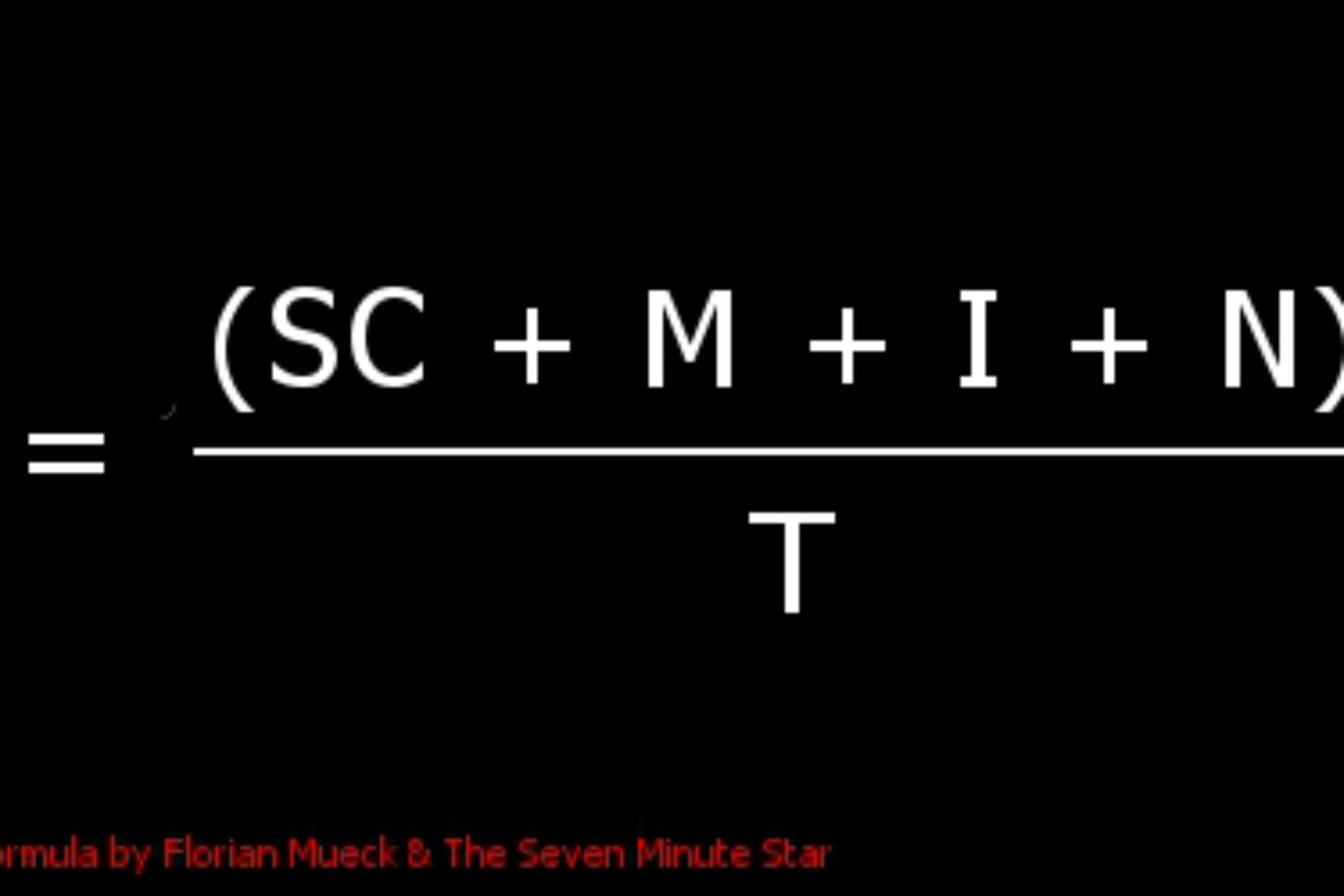Do you remember your math class? Algebra and addition, multiplication and raising to higher power… A simple mathematical formula is a great way to make complex issues understandable. It can stick to your mind like instant glue to your fingers.
When I posted an article the other day about 4 good reasons to become a great communicator I used a descriptive approach. Today I would like to build on this and transform my thoughts about what it takes to be a great communicator into a mathematical formula – The C Formula:

The C Formula: C (value of communicator) equals the sum of SC (level of self-confidence), M (quality of message), I (level of impact) and N (size of network) raised to P (practice) divided by T (time).
Let’s analyze the elements of this formula…
C (Value of Communicator)
Great communicators are not born great communicators. Yes, there might be some naturals amongst us. People who have a natural talent for public speaking and communication. But even those have to sharpen their rhetorical weapons, refine their non-verbal communication (80% of communication is non-verbal), gain confidence and expand their network to get the message out there. The quality of C goes up if we increase the right side of the formula.
SC (Level of Self-Confidence)
JFK, MLK, Gandhi, Tony Robbins, … If we ask ourselves why we consider great communicators great communicators then one common characteristic will pop up right away in our minds: charisma. Great speakers, great communicators have a great portion of charisma and self-confidence. Firm voice, direct eye contact, engaging body movements – an increasing amount of self-confidence is a prerequisite to becoming a great communicator.
M (Quality of Message)
We can increase M by reducing the quantity of what we communicate and, simultaneously, raise the quality. Winston Churchill once said, “If I have to make a two-hour speech, I can prepare it in 10 minutes. If it is a 10-minute speech, then it can take me two hours.” Less is more – a crucial fact for any communicator!Getting to the point is a difficult task and requires the creative side in you. Your creativity combined with 3,000 years of rhetoric are an incredibly rich fountain of knowlegde and know-how. Learn from Demosthenes and Cicero, be creative and increase M!
I (Level of Impact)
A good message is a good swimmer. But you also have to provide an island of memory where it can land. Otherwise the message will drown. Among others, this island is made of fantastic materials like humor, enthusiasm, passion, smile, interaction with the audience and spontaneity.
N (Size of Network)
In order to be heard a great communicator needs people who listen. A great communicator needs audiences. Presentations at your client’s, presentations in your Rotary club, presentations at the Annual Summit of Stockholders. The bigger your network, the more opportunities you will have to communicate your message to people keen on listening to it.
P (Practice)
In communication, in public speaking you gain self-confidence through exposure, through practicing. Your message gets sharper through practicing. Your impact gets stronger through practicing. Even your network expansion sometimes depends on try & error, on practicing. The real secret behind turning you into a great communicator is practice. You can practice using The Seven Minute Star Method, you can practice using other methods, or you can practice atToastmasters International – the best platform for continual improvement of the value “C”!
T (Time)
The quality factor of the C Formula is time. You maximize “C” if you drastically reduce “T”: Reduce the time you need to gain self-confidence! You could go for example to the @catskaraoke on a regular basis. Reduce the time you need to place your message by investing more time into the preparation! Reduce the time of impact! It cannot take longer than 30 seconds to create the first lasting impact. Reduce the time of expanding your network – be an omnipresent communicator!
Summary
Your value as a communicator depends on various expandable factors: your level of self-confidence, the quality of your message, the level of impact you create and the size of your network. There is no other way than practice and doing if you want to improve the values of these factors. In all of these aspects time is a decisive quality factor – reduce it to the max and you will become a great communicator!
Your opinion matters
What is your opinion about The C Formula or increasing the value of communication in general?

